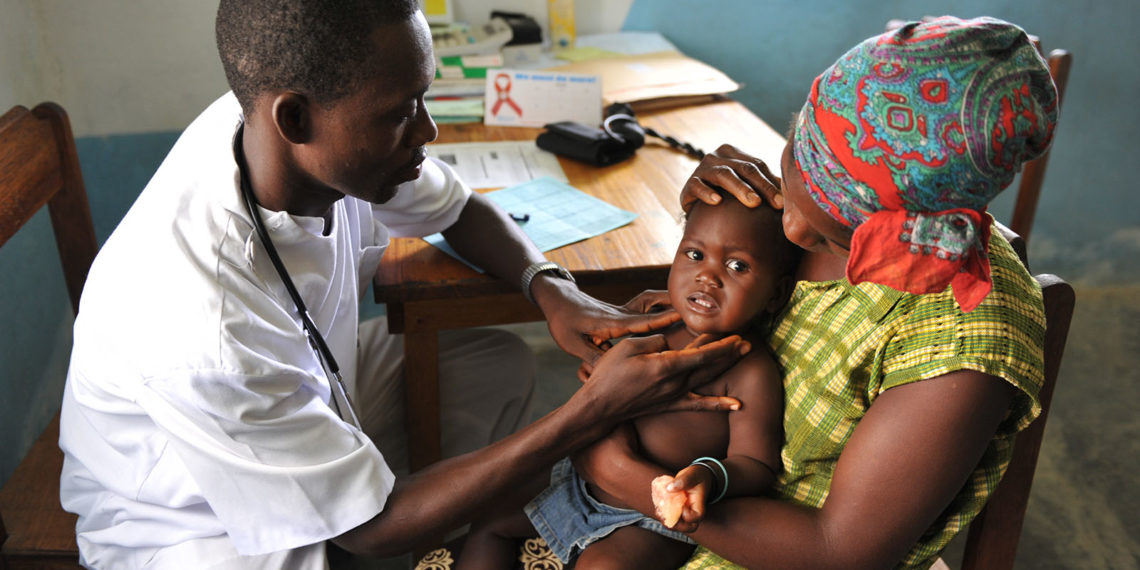It was a dark, rainy night in Dar Es Salaam, Tanzania, when Bertha found herself in labor. Her husband had to rush her several kilometers in an auto rickshaw to the nearest health center.
On getting there, they found only one overwhelmed midwife on duty. Bertha ended up delivering her son on the cold, tiled floor without any help. She watched as her new-born still attached by the cord started to turn blue right in front of her.
Drained of energy, she could do nothing but call weakly to another mother and some vendors she heard outside the window through the pouring rain. It took another hour before the midwife returned to find Bertha had delivered and was fighting for her life and that of her baby.
From Tanzania to India, Nigeria, and even in the United States, the stories of millions of women who have little or no access to quality maternal and new-born healthcare are similar.
Maternal Deaths
Despite U.N. Sustainable Development Goal targets of less than 70 deaths for every 100,00 births by 2030, over a quarter of a million women died during and after childbirth in 2017. This equates to about 810 women dying every day, or one woman every two minutes, from a process as natural as pregnancy and childbirth. Imagine if the world’s largest passenger carrier airplane were to crash every single day. That is the magnitude of this tragedy.
More than 94 percent of these deaths occur in low-resource settings, and most could have been prevented by accessible, affordable quality health services such as Bertha needed on the night her son was born.
According to WHO, in 2017, sub-Saharan Africa and Southern Asia accounted for approximately 86 percent of all global maternal deaths, two-thirds of which occurred in sub-Saharan Africa.
This staggering number in certain parts of the world reflects the gross inequalities in access to quality health services and, according to the WHO, “highlights the gap between rich and poor.”
Many of the complications following pregnancy and childbirth that account for these deaths are largely preventable and often treatable. Across the world, women in under-served communities have felt “left behind, marginalized, and excluded” due to a lack of access to services that their counterparts in places of privilege often take for granted.
This isn’t new information, and many dedicated women and men – health professionals, academics, community activists, politicians, and others – have been working to address this crisis. What is new is the clear call to action to address maternal mortality from 1.2 million women from around the world.
Maternal Health and Basic Needs
Nearly 1.2 million women were surveyed for the What Women Want global campaign conducted by White Ribbon Alliance, a global organization which through a vast network of country alliances and partners has been involved in activating the global movement for maternal health and rights.
The campaign revealed that across the globe, respectful and dignified care; water, sanitation and hygiene (WASH); available medicines and supplies; competent and supported midwives, nurses, and doctors; functional and accessible health facilities; affordable services and supplies; health information and education and timely, attentive care topped the list. This resonated across all age groups and geographies.
Women’s demands took many by surprise, but they shouldn’t have.
As the effects of #COVID19 continue to impact communities around the world, we must take action to curb exacerbation of gender inequalities, particularly towards women who are most disproportionately affected socially by the virus. @UNFPA https://t.co/fzci3fwIfp pic.twitter.com/N2xdOY3Meq
— White Ribbon Alliance (@WRAglobal) March 17, 2020
According to a recent report by the United Nations and WHO, less than 14 percent of countries worldwide had invested sufficiently in effective WASH systems. Over 896 million people worldwide have no access to water in their health facilities, and more than 1.5 billion have no access to sanitation services in their health facilities.
In Nigeria, almost a quarter of the population defecate openly due to a lack of toilet facilities. This lack of adequate WASH systems has left many women vulnerable to hospital-acquired and surgical site infections, further increasing mortality.
At a time when halting the spread of infectious diseases like COVID-19 relies on hand-washing, personal hygiene, cleaning, and disinfection for prevention, these statistics are unacceptable.
Translating Women’s Voices to Sustainable Action
In this era of human-centered design and person-centered care, we have to rethink how we address reproductive, maternal, new-born, child, and adolescent health, not only in small villages but also in bustling capitals. Health systems around the world have indeed fallen short in providing respectful, dignified, and equitable maternal care.
As we celebrate International Women’s Day events globally, it is high time governments and business leaders walk the talk of the World Economic Forum, where improving gender equality and combating global risks were at the top of the agenda.
It is now time to act. We must prioritize equitable and gender-sensitive WASH policies, increase financial investments in WASH services, and the inclusion of women in shaping the health policies that affect them so greatly.
Despite fears and cultural and religious taboos in many of the places where the What Women Want survey was conducted, women aged 15 to over 70 years spoke out honestly for millions of others so that the risks they face daily cease to be the norm. This they have done in the hope of a better life for themselves and their families, leaving no one behind.
Only by empowering the voices of women like Bertha and taking firm action on their needs could we hope to bring about any real, sustainable change and halt the needless deaths of women and children around the world.
Disclaimer: The views and opinions expressed here are those of the author and do not necessarily reflect the editorial position of The Globe Post.























